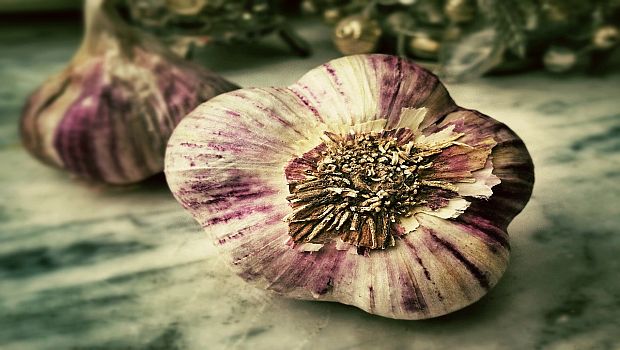Study: Garlic Kills Bacteria
New research published in PLoS explored the antimicrobial activities of garlic against a major bacterial phytopathogen and a multi-resistant and life-threatening human pathogen.
March 3, 2015

As the shift toward cleaner food and beverage labels—ingredients from natural origins, free-from claims or simply a shorter list of ingredients—and overall better-for-you products sweeps the industry, discovering alternative ingredients to replace synthetic preservatives, additives, colors, flavors and more is a high priority.
New research published in PLoS explored the antimicrobial activities of garlic against a major bacterial phytopathogen, and a multi-resistant and life-threatening human pathogen (2014;9(12):e112726). The antimicrobial activities of garlic and other plant alliums are primarily based on allicin—a thiosulphinate present in crushed garlic bulbs. What the researchers set out to do was determine whether pure allicin and aqueous garlic extracts (AGE) exhibit antimicrobial properties against the Burkholderia cepacia complex (Bcc) and a human pathogen. AGE was prepared from commercial garlic bulbs and HPLC was used to quantify the amount of allicin therein using an aqueous allicin standard.
The antimicrobial activity of pure allicin and AGE modified an essential BCP catalytic cysteine residue, stopping the pathogen’s activity. “To our knowledge, we report the first evidence that allicin and allicin-containing garlic extracts possess inhibitory and bactericidal activities against the Bcc,” the researchers said. “Present therapeutic options against these life-threatening pathogens are limited; thus, allicin-containing compounds merit investigation as adjuncts to existing antibiotics.”
These results show promise in many ways, but they definitely put garlic in the role as an antimicrobial in foods and beverages.
You May Also Like




.png?width=800&auto=webp&quality=80&disable=upscale)